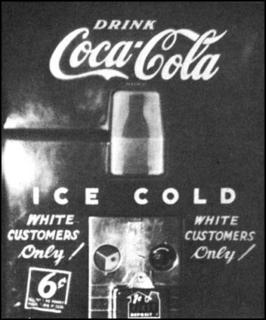History of the Mockingbird

Before we begin reading Harper Lee's "To Kill a Mockingbird" we must be able to put the events of the novel in their historical context. You and your group will research one of the following topics and write as a comment to this post about the event, focusing on:
a) What happened?
b) What was the lesson to be learned from the event?
c) Have we learned that lesson? (Remember, discrimination is not only white against black)
Topics:
A. Scottsboro Boys Trial
B. Montgomery Bus Boycott
C. The Great Depression
D. Jim Crow Laws
E. MLK's "I Have A Dream" speech
F. School Desegregation Governor George Wallace
G. The march on Selma
Remember! Each member of your group needs to have his or her name at the top of your comment in the following format: dconlay p#.
